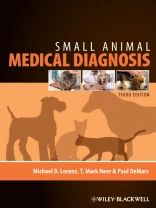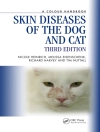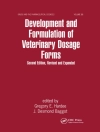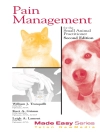Small Animal Medical Diagnosis, Third Edition takes a problem-oriented approach to clinical diagnosis and outlines core information necessary to effectively evaluate the major medical problems in dogs and cats. The text starts by defining problems caused by disease and proceeds to integrate the history, physical examination, and diagnostic modalities into a logical approach designed to assist with the medical management of patients. The new edition continues to serve as a vital tool in accurate and appropriate diagnosis for small animal veterinarians, emergency and critical care veterinarians, and veterinary students.
Tabla de materias
1. The Problem Oriented Approach
Part One: General (Polysystemic) Problems
2. Pyrexia (Fever)
3. Disturbances of Food Intake: Anorexia And
Polyphagia
4. Episodic Weakness
5. Polyuria – Polydipsia
Part Two: Behavioral Problems
6. Aggression
7. Fear, Anxiety and Compulsive Behavior
Part Three: Conformational Problems
8. Ascites, Peripheral Edema, and Abdominal
Distention
9. Retarded Growth
10. Changes in Body Weight: Weight Loss and
Obesity
Part Four: Dermatologic Problems
11. Pruritus
12. Primary and Secondary Skin Lesions
13. Alopecia
14. Disorders of Pigmentation
Part Five: Hematolymphatic Problems
15. Bleeding Disorders
16. Lymphadenopathy
Part Six: Cardiovascular Problems
17. Disturbances of Heart Rate, Rhythm, and Pulse
18. Murmurs and Abnormal Heart Sounds
19. Abnormal Mucus Membranes
Part Seven: Respiratory Problems
20. Coughing and Hemoptysis
21. Respiratory Distress and Cyanosis
22. Syncope
23. Abnormal Lung Sounds
24. Sneezing and Nasal Discharge
Part Eight: Digestive Problems
25. Ptyalism
26. Dysphagia
27. Regurgitation and Vomiting
28. Diarrhea
29. Constipation and Flatulence
30. Abdominal Pain
31. Icterus
Part Nine: Urologic Problems
32. Abnormal Micturition: Dysuria, Pollakiuria, and
Stranguria
33. Discolored Urine
34. Urinary Incontinence
Part Ten: Reproductive Problems
35. Vaginal and Preputial Discharge
36. Abnormalities of the External Genitalia
37. Abortion, Abnormal Estrus Cycle and Infertility
Part Eleven: Musculoskeletal Problems
38. Lameness
39. Bone, Joint, and Periskeletal Swelling
40. Pain
Part Twelve: Neurologic Problems
41. Paresis or Paralysis
42. Ataxia
43. Head Tilt
44. Collapse (Seizures, Syncope, Cataplexy, Narcolepsy)
45. Stupor and Coma
Part Thirteen
46. Blindness
47. Aniscoria
48. Nystagmus and Strabismus
49. Loss of Corneal Transparency
50. Abnormal Anterior Chamber
51. Abnormal Lens
52. Anosmia – Loss of Olfaction
53. Deafness
Part Fourteen: Laboratory Defined Problems
54. Hematologic Problems
55. Abnormalities of the Standard Biochemical Profile
56. Problems Identified on Urinalysis
57. Abnormal Blood p H, Anion Gap and Blood Gases
Sobre el autor
Michael D. Lorenz is Dean of Veterinary Medicine at Oklahoma
State University.
T. Mark Neer is Professor of Internal Medicine and
Director of the Veterinary Teaching Hospital at Oklahoma State
University.
Paul De Mars is Adjunct Assistant Professor of Small
Animal Community Practice at Oklahoma State University.












